WARNING: Contains SPOILERS for Doctor Who – “The Giggle.”
Doctor Who has made history with its first ever bi-generation as Ncuti Gatwa succeeded David Tennant as the Doctor in the final 60th anniversary special, “The Giggle.” Facing off against a returning 1960s villain, the Toymaker (Neil Patrick Harris), the Fourteenth Doctor was shot by a Galvanic beam to trigger a regeneration. Due to the rules of the Doctor and the Toymaker’s game, the cosmic trickster decides that a new incarnation should play their third and final game. However, the Toymaker got more than he bargained for when, rather than trigger a regeneration, he caused the first-ever bi-generation.
The specifics of regeneration in Doctor Who have never been nailed down, and the ancient Gallifreyan process to cheat death is regularly being tweaked or rewritten by subsequent production teams. In the late 1970s, Romana (Lalla Ward) was able to choose bodies before settling on her next regeneration in “Destiny of the Daleks”. And then, in Matt Smith’s final Doctor Who adventure, “The Time of the Doctor”, the Eleventh Doctor was awarded a brand-new regeneration cycle. Much later, Jodie Whittaker’s Thirteenth Doctor discovered that they provided the genetic building blocks for Time Lord regeneration. The bi-generation between David Tennant and Ncuti Gatwa is merely the latest quirk of this unknowable process.
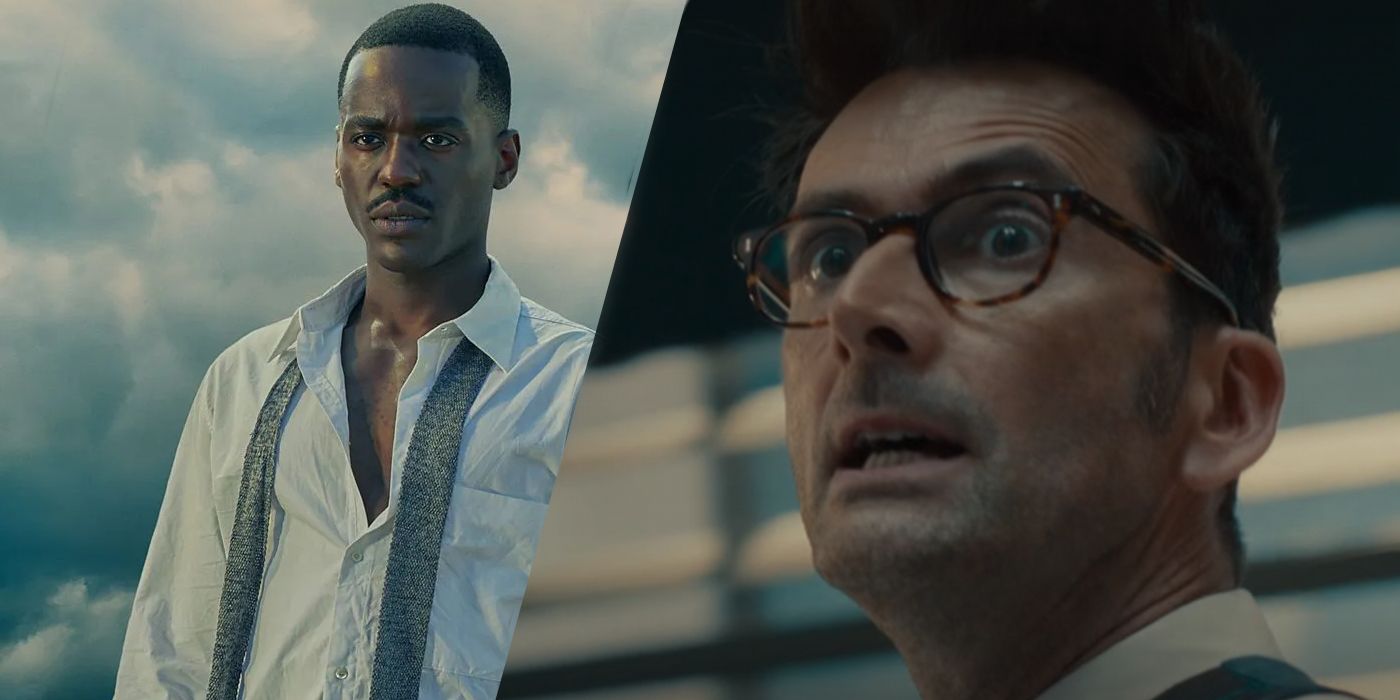
Doctor Who 60th Anniversary Specials Ending Explained
The final Doctor Who anniversary special, “The Giggle,” is a regeneration story like no other – and its ending sets up some tremendous adventures.
Bi-Generation Means The Doctor Has Split In Two
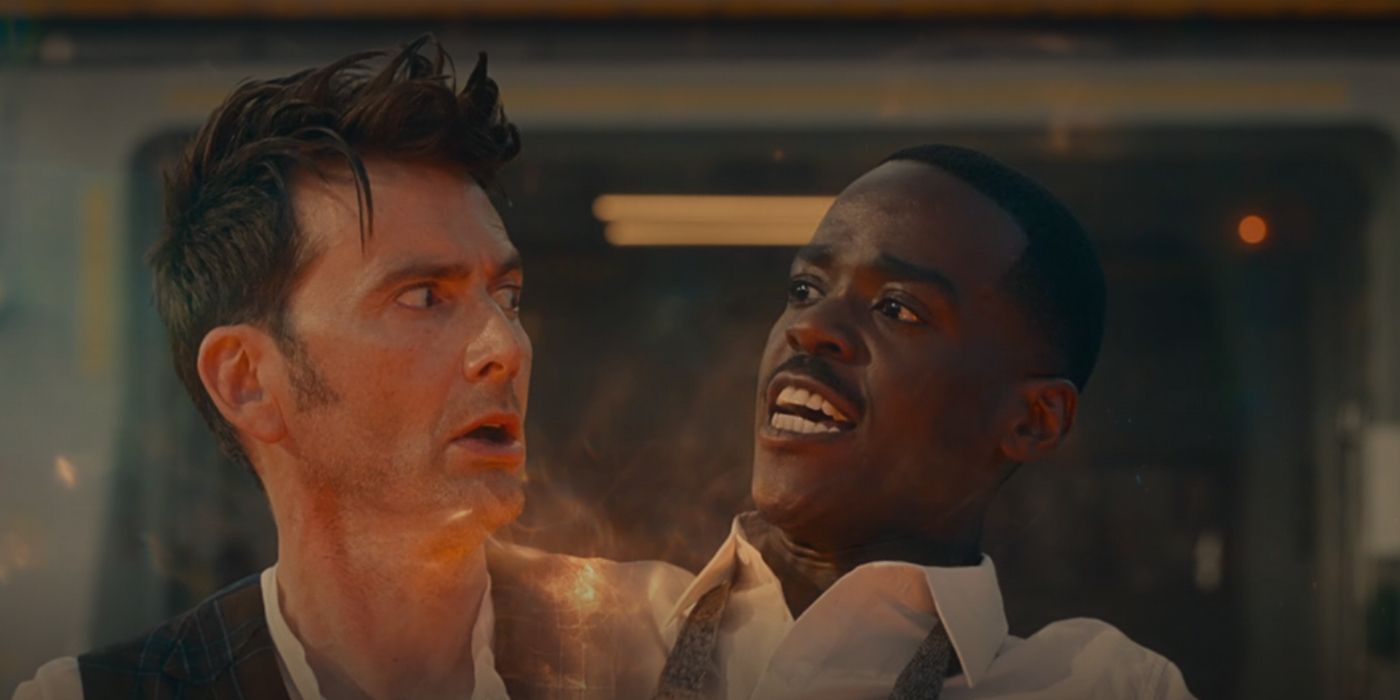
After being shot by the Galvanic beam, the Fourteenth Doctor begins regenerating, supported by Donna Noble (Catherine Tate) and Melanie Bush (Bonnie Langford). And then, much like he did during “Journey’s End”, David Tennant remains as the Doctor. In a callback to Peter Davison’s regeneration in “The Caves of Androzani”, the Fourteenth Doctor notes that “it feels different this time” before splitting, like an amoeba, into two Doctors. The Fourteenth Doctor’s costume is then shared between both Doctors, leaving Ncuti Gatwa in an unbuttoned shirt, loosened tie, pants and a pair of Converse boots.
It’s never been done before in Doctor Who, but brilliantly it allows Russell T Davies to give fans a multi-Doctor special for the 60th anniversary. After the Fourteenth and Fifteenth Doctors defeat the Toymaker, the two incarnations are also able to split the TARDIS in two. The explanation given is that the Toymaker’s powers, and the influence of his realm have allowed the Fifteenth Doctor to bend reality and create a second TARDIS. This may also be the explanation for how the Doctor was able to split himself in two to get some backup in his final battle with the Toymaker.
Bi-Generation Is A Time Lord Myth
Ncuti Gatwa’s Fifteenth Doctor states that bi-generation is a Time Lord myth, suggesting that there have been no recorded incidents until now. Given that Doctor Who‘s Timeless Child retcon confirms the Time Lords’ regenerative gifts originated with the Doctor as a child, it makes sense that they’re also the first to bi-generate. There’s some lovely poetry in Russell T Davies’ concept of bi-generation, which effectively allows the Doctor to unburden themselves of all the trauma they’ve experienced over the past fourteen regenerations. Splitting himself in two was a clever trick to defeat the Toymaker, but it has also renewed the Doctor to start afresh.
In-universe, the Doctors’ regeneration tends only to happen at the end of a climactic battle, not during one. Faced with a deadly threat to all reality and some of his oldest friends, it does make sense that the Doctor would use their regeneration energy to effectively birth a new incarnation. Interestingly, Russell T Davies has stated that the bi-generation is how all the past Doctors are back for Tales of the TARDIS. This claim was made in the hugely enjoyable in-vision commentary on The Giggle, available on the BBC iPlayer, a clip from which was shared on Twitter:
Do Both Doctors Retain All Their Memories?
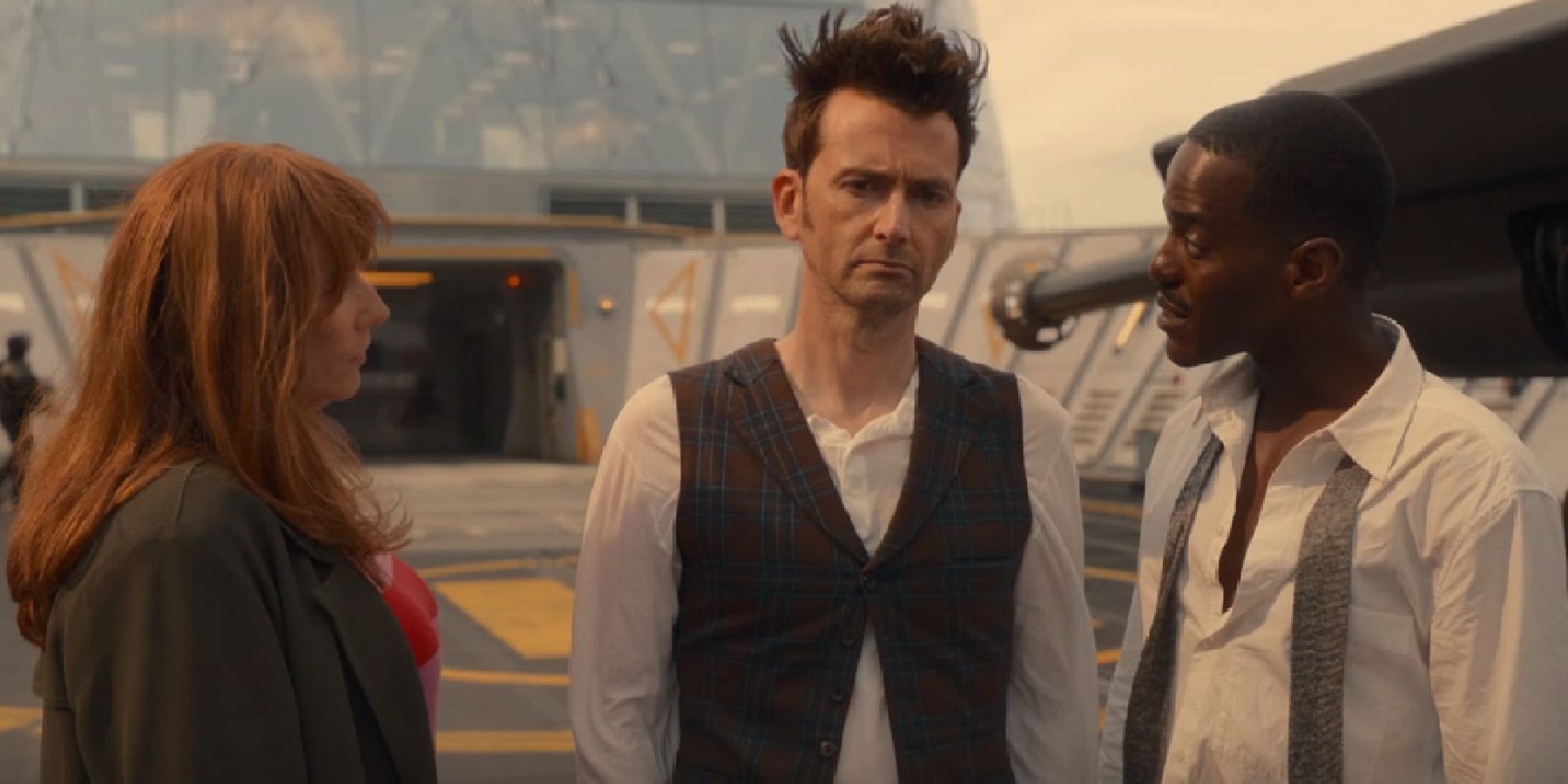
Ncuti Gatwa’s Doctor definitely appears to have the same memories as David Tennant’s Doctor, referencing everything from Sarah Jane Smith (Elisabeth Sladen) to the devastation of Logopolis and the death of Adric (Matthew Waterhouse). So it certainly seems that he retains those memories and that knowledge, but has managed to move past the emotional baggage of all that pain and loss. Although the Fourteenth Doctor spends time showing Fifteen how to operate the TARDIS, it feels like he’s trying to be useful and find something to do now that his successor has arrived.
However, as bi-generation is a brand-new concept, it’s not completely outwith the realm of possibility that the Fifteenth Doctor has forgotten some things. David Tennant and Ncuti Gatwa’s Doctors had the Fourteenth Doctor’s costume split between them, so it’s possible that not every memory has been transferred. This would freshen up Doctor Who for the Ncuti Gatwa era, with the time traveler being put on the back foot again, learning and reacting to each new situation instead of being the slightly insufferable know-it-all that previous incarnations could be.
Doctor Who’s Bi-Generation Sets Up Future Stories For Both Gatwa & Tennant
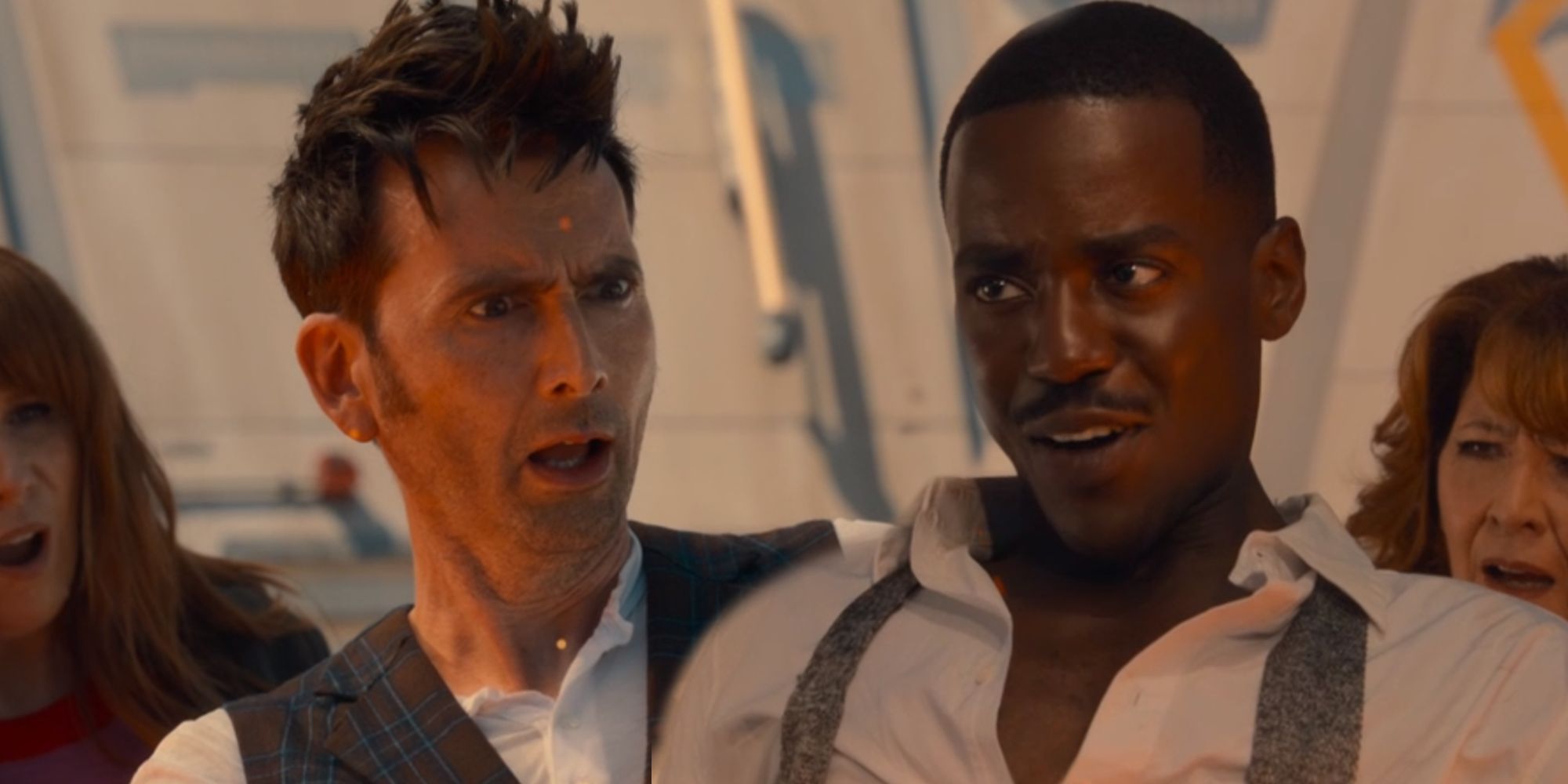
The Doctor’s bi-generation was teased by Doctor Who‘s metacrisis solution, when Donna and her daughter Rose (Yasmin Finney) divided the Time Lord mind between them. Both Doctors effectively do the same thing in The Giggle, but rather than “let it go“, the Fourteenth Doctor still seems keen to have adventures. It’s revealed in the touching final scene that the Doctor has already taken Rose to Mars, and traveled to New York’s gilded age with Mel. What’s more, UNIT will surely be delighted to know that they’ve got an Earthbound Doctor once again.
Having two Doctors exist at the same time does mean that Ncuti Gatwa and David Tennant could meet up again in Doctor Who‘s future. In just a handful of scenes, their chemistry is electric, and fans will already be eagerly anticipating their next team-up. For now, though, the focus should be on establishing the new era of Ncuti Gatwa as the Doctor and Millie Gibson as Ruby Sunday. David Tennant’s Doctor has effectively retired, paying off a long-held ambition by writers like Douglas Adams and Steven Moffat. However, should events ever spiral out of control again, the Fifteenth Doctor knows that he can rely on his predecessor and his new family for back-up in future Doctor Who episodes.
Doctor Who returns to BBC One and Disney+ on Christmas Day. All three 60th anniversary specials are available to stream now.
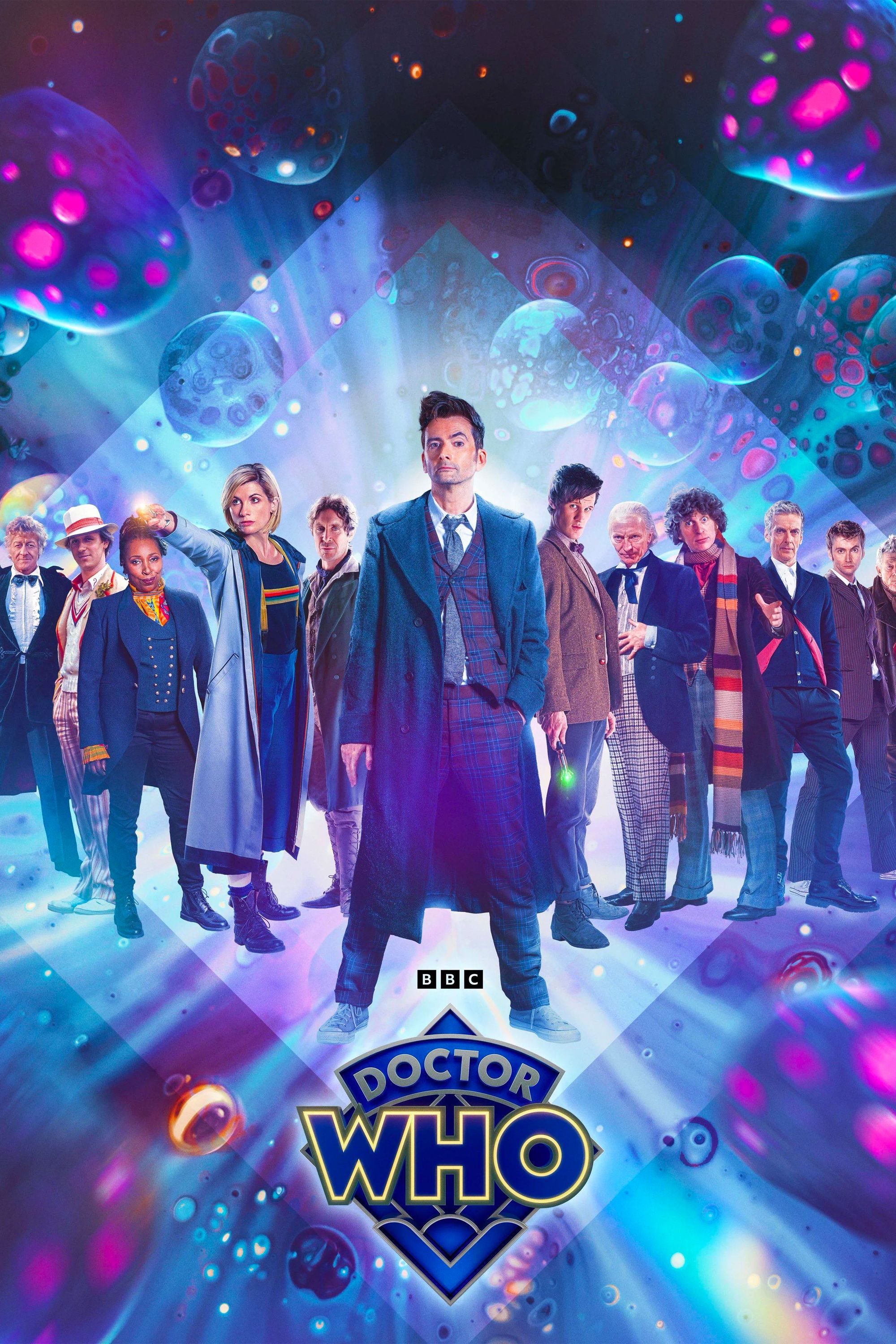
Doctor Who
Originally premiered in 1963, Doctor Who is a sci-fi series that follows a powerful being known as a Time Lord, referred to as the Doctor. Using an interdimensional time-traveling ship known as the TARDIS, the Doctor travels time and space with various companions as they solve multiple problems and help avert catastrophe as much as they almost cause it. Though the Doctor is always the same character, they experience regenerations, allowing them to be recast every few seasons as a unique immortal being with new personality traits.




